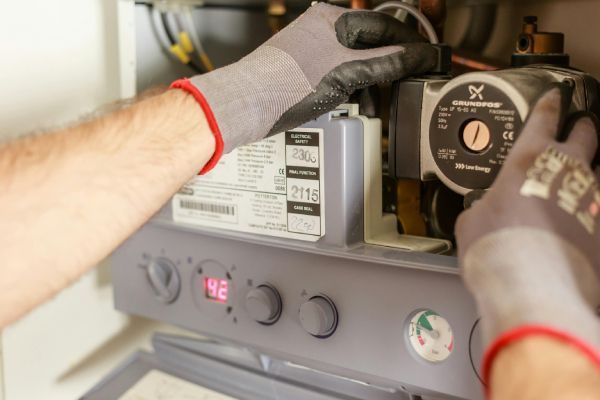Master Plumbers Blog
Should You Repair or Replace Your Water Heater: 5 Considerations
Hot water is something you rarely think about—until you don’t have it. Indeed, a reliable water heater is likely going to be one of the most frequently used appliances in a household, as residents need hot water for showering, washing dishes, doing laundry, and other everyday tasks. But like any other appliance, water heaters endure wear and tear over time. As you use them more and more, they can develop leaks and other malfunctions or even stop producing hot water altogether.
When your water heater starts acting up, deciding whether to repair or replace it isn’t always straightforward. While some problems have simple solutions, others may signal that your unit is on its last legs. Choosing the wrong approach could leave you stuck with rising repair costs or an outdated system that drains energy.
We at Mains Plumbers are here to help you overcome your water heater woes with ease. As local
plumbers Dunedin residents trust, we help New Zealand homeowners make informed decisions about their water heating systems. We’re well-equipped with the experience and expertise necessary to provide excellent regular and
emergency plumbing services. Let us walk you through some key factors to consider when deciding whether to repair your existing water heater or invest in a new one.
How Old Is Your Heater?
Even the most reliable water heater won’t last forever. Traditional storage tank models typically function well for 8 to 12 years, while tankless systems can operate efficiently for 20 years or more. It may be time to consider an upgrade once you notice your unit is approaching or past these timeframes.
Moreover, ageing water heaters don’t just risk unexpected breakdowns—they also become less energy-efficient over time. As sediment builds up in the tank, it compromises the heater’s efficiency and forces the system to work harder. This leads to higher energy bills and a decline in overall performance. Thus, replacement is often the smarter long-term investment for heaters that are more than a decade old.
How Frequently Do You Need Your Heater Repaired?
A water heater that needs constant fixing can strain your finances in the long run. Occasional repairs are normal, particularly for replaceable parts like thermostats, heating elements, or pressure relief valves. However, you can expect repair bills for a frequently malfunctioning unit to add up quickly.
A good rule of thumb is the 50% rule—if the cost of repairing your water heater exceeds half the price of a new unit, it’s time to start looking at replacement options. While minor issues can often be fixed quickly and cheaply, repeated problems may indicate underlying wear and tear that no repair can fully resolve.
What Common Issues Do You Encounter with Your Heater?
Some water heater problems are minor inconveniences, while others point to serious system failures. Understanding the difference can help you decide whether a simple fix will do or if a full replacement is the better choice. For instance, a faulty thermostat or heating element may stop a heater from producing hot water—both of these components can be replaced easily whenever you need it. It’s also usually possible to fix issues like low water pressure or a pilot light that won’t stay lit without replacing the entire unit.
On the other hand, rust-colored or otherwise dirty water from the tank could indicate internal corrosion, which means your heater is deteriorating from the inside. Major leaks from the tank itself are a sign of structural failure, and in this case, replacement is the only option. Sediment buildup causing loud rumbling sounds or overheating is another indication that your unit may be nearing the end of its lifespan.
Does Your Heater Still Have Warranty Coverage?
Before making any decisions, it’s worth checking whether your water heater is still under warranty. Many manufacturers offer 5 to 10 years of coverage, which may include replacement parts or even full unit replacement.
For heaters that still have coverage, repairs may be the more cost-effective option. However, if the warranty has expired and you’re facing a costly fix, replacing your heater could be the better long-term investment. A new unit will be more efficient, perform better, and bring you more peace of mind with a fresh warranty period.
Does Your Heater Meet Your Current Household Needs?
As your household grows, so do your hot water demands. A heater that once met your needs might now struggle to keep up with the addition of new family members, extra bathrooms, or additional appliances that rely on hot water.
Frequently running out of hot water or inconsistent temperatures during peak usage times are signs that your heater may no longer be sufficiently sized for your home. Consider upgrading to a larger-capacity unit or a tankless system that provides hot water on demand to prevent frustrating shortages and keep your household comfortable.
Deciding whether to repair or replace your water heater comes down to factors like age, efficiency, and ongoing maintenance costs. A timely replacement can save you money in the long run, while a well-maintained unit can continue serving you for years. If you're unsure about the best option, Mains Plumbers can assess your system and provide expert recommendations tailored to your home’s needs.
Get in touch with us for expert help in resolving your plumbing issues today!







